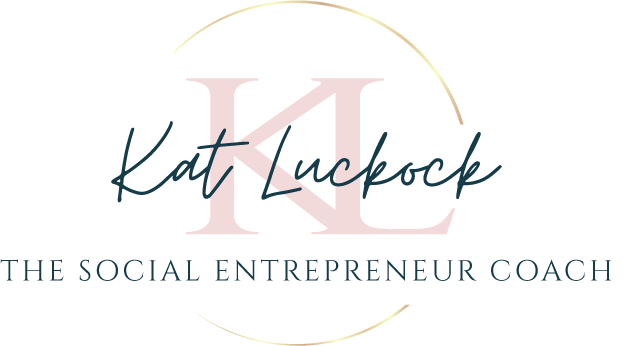How to sell to corporates as a social entrepreneur
When I started as a Social Entrepreneur, back in 2013, I had absolutely no experience of selling and in truth IT TERRIFIED ME.
However as a Social Entrepreneur, I designed our business model around generating income from corporate clients because I was SO OVER asking for sponsorship and donations.
So in order to do this I had to learn everything I could about finding, connecting and selling to people in corporates.
We knew we had something of value to offer, we just weren’t quite sure how to offer it in a way that was compelling to them.
That’s where the Selling To Corportaes System for Social Entrepreneurs was developed. My tried and tested method to help any social entrepreneur understand exactly what they can sell, who they can sell to, at what price and how to pitch it in a way that matches your unique value and expertise to their specific business needs.
My started back in 2013 with my best friend Jen Baughan, when we set up Solutions for the Planet, an award-winning education programme in schools, which now delivers a year-long STEM & Enterprise programme with nearly 4000 11-14 year olds, across the UK each year, and generates over £150k a year the majority of which comes from selling to corporates.
As CEOs, Founders and Changemakers trailblazing a new future, we have to take responsibility for finding ways to generate sustainable trading income in our social enterprises. This isn’t someone else’s responsibility.
One way to do this is selling corporate clients and usefully many more corproates are looking to buy from social enterprises or are interested to explore how social enterprises can offer alternative solutions to the objectives they have or challenges they’re facing.
How to sell to corporates as a social entrepreneur
First of all you need to have a clear offer that speaks directly to a corporates’ need, desire or objective. One of the biggest mistakes I made and see other social enterprises making is trying to pitch their core programmes as a “nice thing for corporates to support or invest in” rather than creating an offer that meets a corporates’ needs and in turn then enables you to do what you want to deliver.
The second thing is to know exactly who you need to be speaking to in a business, not just what kind of businesses you’d like to have as clients, and taking the time to get to know people and what they and their business really want and need. You can then build this in to your offer and tailor your pitch.
Too many social enterprises are so desperate for the money they pitch and try to sell too soon (e.g. on the first interaction), this is not usually aligned with your values, will always feel icky, and rarely ever works. See this as a long game, an opportunity to build your network, establish relationships and at the right time (one your know them better and know whether your offer is right for them) to pitch your offer.
We also found in the first couple of years that we saved a lot of time by identifying the decision makers and budget holders in a business. Where we didn’t do this we often ended up pitching multiple times to multiple different people across a business and decisions were rarely made. So find out who makes the decisions and who holds the purse strings and ask for a meeting with them. Yes this is usually Heads of Departments, Directors or the Chief Executive.
Third is be VISIBLE and be SEEN as the expert that you are. You may not feel it but you are the expert of the services you provide and the offer you’ve designed. It’s yours, so start behaving as such. People won’t buy from you if you’re not confident it won’t get them results and deliver what you know it can. And you have to be willing to share this expertise, knowledge and your offer so people get to know you as an expert.
It’s essential to find and build connections with corporates and become known for what you do so you get requests for meetings. I think one of the best ways to do this is via LinkedIn but you can also get in front of your target audience by attending trade shows, conferences and events where your audience will be.
Once you have those meetings booked in it’s all about creating and delivering the perfect pitch. I know this is the part many social entrepreneurs really fear. I hated the first few times we had to go and pitch, it was so far out of my comfort zone. But it is one of those things that once you’ve done it a few times it gets easier and develop your own style and flow.
There are some key steps I teach in my Sell to Corporates course though to help you get started including how to prepare so you feel as confident as you can; what to include in your actual pitch and how to structure it; how long to talk for and how long to answer questions; how to ask if they’re interested (and make the sale); and how to end the meeting positively regardless of the decision.
If you found this blog useful you might also like to read the following blogs:
What could I sell to corporates as a social entrepreneur?
